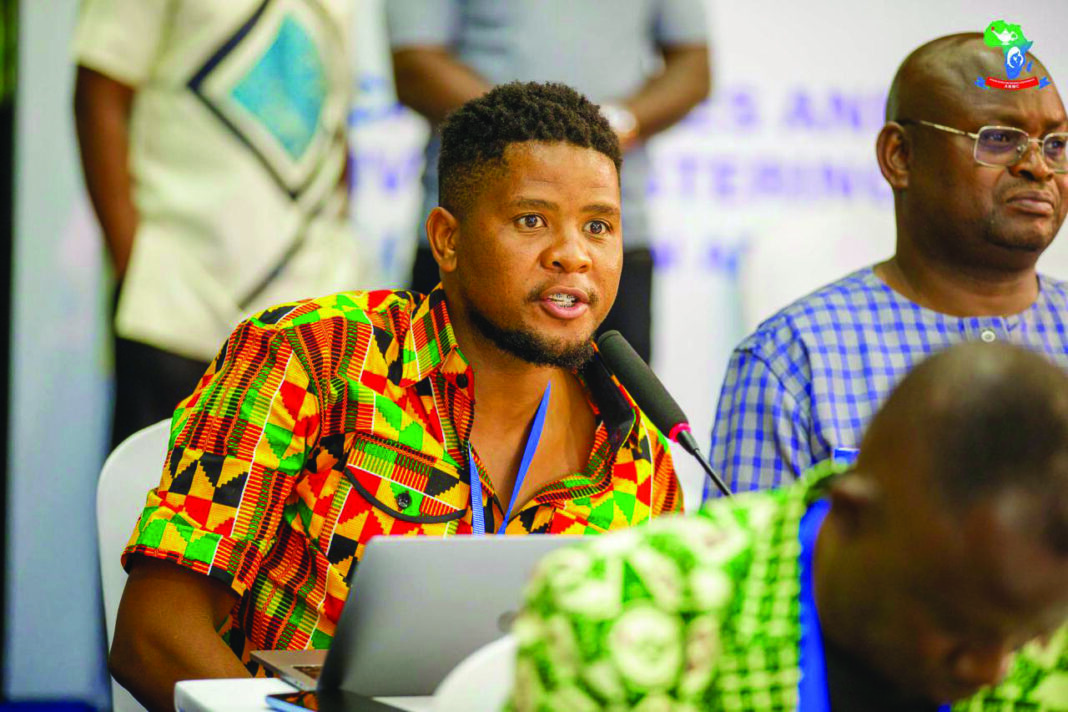Nurses and midwives are calling on the government and other employers to treat them as their counterparts with similar levels of education.
They say that nurses and midwives with a Bachelor’s Degree were not being paid at the same level as other professionals with similar qualifications, despite performing vital work in healthcare.
In an interview with theReporter’s ‘Mantšali Phakoana, the Lesotho Nursing and Midwifery Organisation (LeNMO) secretary general, Morephe Santi, says it is imperative that such professionals are given fair remuneration commensurate with their qualifications and experience. Santi also reveals how Lesotho’s failure to adequately invest in nurses deprives the country of returns on investment.
What is the significance of commemorating International Nurse’s Day? How did Lesotho celebrate the day this year?
International Nurses Day is globally used by nurses in their diversity, nursing organisations and key stakeholders to educate the community about the nursing profession and how it is structured locally and globally. Each year, the International Council of Nurses as a federation for over 130 National nurses’ associations release a theme which is aligned to priorities of the World Health Organisation’s nursing directorate.
This year, the theme for the International Nurses Day is Our Nurse Our Future, Investing in Nurses Strengthen Economies. The theme seeks to demonstrate the return on investment when governments invest in nursing and how that impact economies. The health sector is one of key ministries enabling productivity in any country. Nursing is the heart of the health sector hence failure by the government of Lesotho to adequately invest in nurses deprives the country of returns on investment.
How would you describe the current state of nursing in Lesotho, given the challenges they have faced over the years?
The nursing profession in Lesotho is faced with an array of challenges which affect all the pillars of nursing including: Nursing regulation, Nursing Directorate, Nursing regulation and Nursing practice.
Regulation is faced with financial challenges due to low subvention from government, which only cover just a fraction of its operational costs. The profession as a result fails to undertake key functions such as public education, monitoring of standards, audit inspect of nurse training institutions and private clinics, and supportive supervision.
The nursing directorate as a policy arm of QUAD (four pillars) is faced with a redundant professional structure which does not meet the current demand of the nursing profession with huge nurse-patients ration, lack of remuneration for specialist nurses, as well as lack of adequate resources to enable provision of quality nursing services.
Nursing education currently produces the majority of diploma level nurses with only one training institution producing bachelors and master’s programmes, while there is no PhD or post-doctoral studies in country.
Lastly, the nursing practice is faced with unfair labour practices by the government of Lesotho and other employers, highlighted by the discrimination of nurses against other professionals. Nurses trained at Bachelor’s degree level are not paid at the same level with their counterparts who studied other professions.
Furthermore, nurses work for extended 12 hours shifts, night duty and on-call duty but they are not compensated for this while their counterparts receive the better benefits and high salaries.
What role do you envision for the government in resolving the ongoing issues faced by nurses, such as salary disputes and inadequate staffing?
The Lesotho Nursing and Midwifery Organisation (LeNMO) which was formally known as the Lesotho nurses Association (LNA) has been engaging with the Ministry of Health (MoH) on these issues without any solutions so far.
The transformation of LNA to LeNMO as a trade union provide an opportunity to have a right to sit on the table with the employer (MoH) to discuss issues and conditions of employment. As a trade union we have a right to collective bargaining as per the provisions of the Labour Act of 2024. We are therefore, looking forward to having a collective agreement with the Ministry of Health soon.
What specific measures or policy changes does LNA advocate to improve the working conditions and safety of nurses?
The Kingdom of Lesotho and Basotho can reap the benefits of the profession if there is substantial investment in the nursing and midwifery profession as per the World Health Organisation Strategic Direction for Nursing and Midwifery. This outlines priorities which are aligned with the goals of achieving Universal Health Coverage (UHC), health security, and improved health outcomes as follows: Strengthening Nursing and Midwifery Education, Enhancing Workforce Policy, Leadership, and Management, Optimising Practice Through Regulation and Professionalism, and Building Evidence and Strategic Information as outlined below
- Strengthening Nursing and Midwifery Education
- Improve the quality and capacity of nursing and midwifery education.
- Ensure competency-based curricula aligned with population health needs and technological advancements.
- Invest in faculty development and educational infrastructure.
2. Enhancing Workforce Policy, Leadership, and Management
- Develop and implement robust workforce policies.
- Strengthen leadership capacity at all levels – clinical, educational, and policy-making.
- Promote gender equity, decent work conditions, and retention strategies.
3. Optimising Practice Through Regulation and Professionalism
- Ensure enabling legislation, accreditation, and licensing practices.
- Support advanced practice roles and full scope of practice for nurses and midwives.
- Strengthen accountability mechanisms and ethical conduct.
.
4. Building Evidence and Strategic Information
- Improve data systems on the nursing and midwifery workforce.
- Support research to guide decision-making and policy.
- Promote the use of data for workforce planning and investment advocacy.
Given the historic legacy of nursing in Lesotho, what actions should the government and society take to ensure the ongoing importance and appreciation of nurses in the country?
Lesotho through the highest office of the King, working in partnership with the Ministry of Health, should establish special awards for nurses to appreciate them for their service to the nation which, among others, has carried us through the Covid-19 pandemic. Nurses have also stood with the nation shoulder to shoulder during disasters preserving livee.
How can Lesotho leverage technology and digital innovation to enhance nursing services and improve efficiency?
The Nursing education programme has taken a lead in the use of technology to enhance simulation-based education by use of high-fidelity manikins. Furthermore, they have incorporated basic computer into the curricula which makes nurses ready to use technology upon completion of their studies. Some nurse training institutions such as Maluti Adventist College have successfully accredited an open and distance learning programme in midwifery, which shows that the profession is moving with advances in technology.
The Maseru district Hospital has also advanced technologies for patient management although there are minimal nursing specific technologies. We therefore, urge the government to invest heavily on ICT technologies in the heath sector to improve efficiencies and reduce paper-based record keeping which does not provide real time data for effective decision making.
As Lesotho celebrates International Nurses Day, what message would you like to convey to current and aspiring nurses in the country?
Nursing and midwifery with its core foundation on both science and art have not been a target for artificial intelligence and regenerative technologies as no robot can provide better compassion and therapeutic touch than a human being. We therefore, invite people to join the most trusted profession in the whole world – nursing.
A critical issue that LeNMO has addressed is the brain drain of local nurses to other countries. Can you provide us with an update on the progress LeNMO has made in safeguarding Lesotho’s nursing talent from such practices and ensuring that they are respected and valued within the country and beyond?
LeNMO has never and will never be against export of labour. In fact, we have written to parliament to urge the government to facilitate it. The process must be done right by the Ministries of Labour and Foreign affairs and International Relations.
WHO guidelines on health workforce migration should be adhered to so that our nurses will be paid the same salaries as those of the host countries and be entitled to same benefits as per International Labour Organisation conventions, such as the right to freedom of association. Nurses should also be protected from human trafficking.







